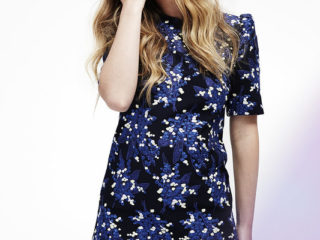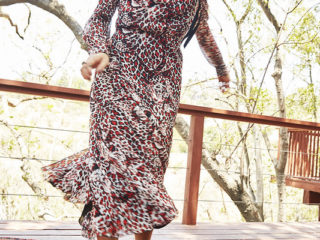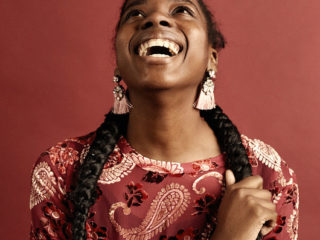February is for love. November is for pumpkin pie. March is for spring cleaning.
Each month carries its own bliss. January is for resolutions and good intentions or as the French say, “Raison d’être,” which means reason to be.
I’m not going there today. Don’t you worry. As much as I appreciate a solid to-do list, I’m not going there.
No. Instead, we’re going further. Far beyond the land of goals and resolutions is the world of eulogy. Eulogies are the words others say when you are gone. Basically you, in a nutshell.
Have you ever thought of what people would say about you? Or rather, what you’d like them to say?
Have you ever thought of what people would say about you? Or rather, what you’d like them to say?
A few years ago it came to me, this whole eulogy thing, after reading Michael Hyatt’s “Living Forward: A Proven Plan to Stop Drifting and Get the Life You Want.” Hyatt is a man of intentional living, and he teaches this in his podcasts and books. I found “Living Forward” is not so much about the year ahead, but more about a life—the rest of your life. That got my attention.
Hyatt teaches to divide your life in categories or areas or people of importance. For me, the categories are my husband, my children, my work, God and friends. Finding these categories was the easy part of the book. I remember thinking, “I love this easy book. If I continue like this, I’ll have my life figured out by tomorrow.”
That’s why the next chapters shook me because there was nothing simple there. The reader needs to write a eulogy for each category. The tricky part here is, you don’t write about them, but you write what they will say about you when you’re dead.
That’s where he lost me. This felt much too dramatic and most egotistical to me. There was no way I’d do this. I decided to skip the next three chapters (I’m smart like that) and continue with whatever was next, but the questions didn’t let me go.
I kept thinking, “What would they say about me?” and “Is it who I want to be?”
After a few days, and with great hesitation, I wrote one—my eulogy about me. Me to me. Since I’m a humble person, with plenty of self doubt, the eulogy that came from my writings was a poor excuse of a wallflower.
With great hesitation, I wrote one—my eulogy about me. Me to me.
She was nice but had her flaws. She was helpful, but not so patient. She was warm, but not always the best.
A little bit like that. This eulogy of mine made me very sad. Is this who I am? Is this how I see myself? It is not who I want to be.
I want to be a bright, shining, warm and beautiful person. I want to be a person with wise words and a heart wide open. I want to be a woman who knows how to make time for others and has flowers to bring.
I want to be somebody with listening ears and an open mind. I want to be gentle with an attitude. I want to be a woman who when she enters a room, it lights up. A woman with clear direction, who knows her worth. Oh, and funny too and a great dancer.
I want to be a woman who when she enters a room, it lights up. A woman with clear direction, who knows her worth.
I leafed back a couple of chapters, and read, “When you’re not dead and the other person is not dead, everything is possible.”
I decided to write another eulogy, from me to me. This time it was very similar to the words I just wrote down about that bright, shining, warm woman. I re-read it and thought to myself, “Wow, she mesmerizes me. I want to be her friend!”
So I wrote another one, for my children, to me. By the end of it, I was in tears. So beautiful, the things they said about me. (Or rather, the things I said they said, about me…)
“My mother was a strong woman who knew her worth. She wasn’t afraid to speak the truth but always took the time to listen to me. She taught us to communicate, to disagree in harmony and live with intention. Her life showed us God’s grace. I knew that if I needed her, she would drop everything and be there for me. My mother knew how to love. I will miss her so.”
Something like that. Do you feel it?
I kept going and wrote a eulogy for each category. I found great freedom in this—to have my words create a beautiful person. It didn’t describe who I am today, but it created a picture of who I want to be—the best of me.
It didn’t describe who I am today, but it created a picture of who I want to be—the best of me.
After this, it became a little easier because the next chapters help you compare who you are now to who you want to be for each category.
For example, my husband would say how fun it was to be with me. So I have to ask myself, “Am I fun to be with? Or do I complain a lot, talk about chores most of the time?”
God would say how I really wanted to know Him. I ask myself, “Do I? How much time do I spend with Him?”
My friends would talk about the flowers I brought and how welcoming I was. And I thought, “When was the last time I brought flowers or had friends at my dinner-table?”
All these questions showed me areas I could grow in, and it helped me to create a list of things I could work on. A list of intentions or, dare I say it, goals. For your raison d’être. Your very own reason to be.
If you wrote your own eulogy, what would it say? How can you live with more intention?
Image via Ben Cope, Darling Issue No. 10










